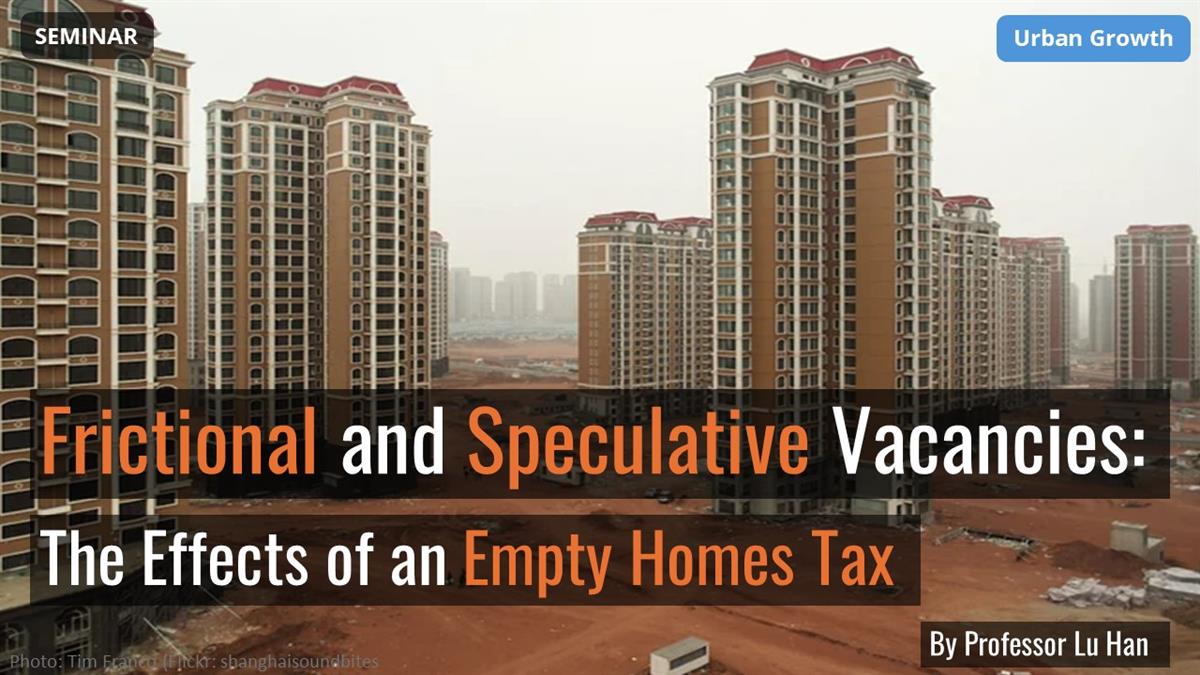Frictional and Speculative Vacancies: The Effects of an Empty Homes Tax

Using individual housing transactions data from Vancouver, the impacts of a recent empty homes tax is analysed. We'll explore short-run effects, such as sharp declines in house prices and rents, alongside increases in sales, listings, and time-on-the-market, following the implementation of the tax. We'll then shift our focus to the intriguing long-run dynamics uncovered, including the reversal of most short-run effects except for the persistent drop in rent.
The paper explains these novel facts by developing a model with owner-occupied homes, tenanted rental units, and empty houses. Housing units are constructed by competitive developers and supplied to local households for consumption and to investors as a store of wealth. Empty homes held by investors are classified as speculative vacancies, while frictional vacancies are the equilibrium result of search-and-matching frictions in the owner-occupied market. A tax on empty homes can improve housing availability and affordability in the rental market by reducing speculative vacancies, but distort the incentives to supply vacant homes for sale in the owner-occupied market (i.e., frictional vacancies), thereby increasing house prices and lowering homeownership in the long run.
Speaker
HAN Lu, Professor in Real Estate and Urban Land Economics
Lu HAN is the Nathan F. Brand Chair Professor in Real Estate and Urban Land Economics and Faculty Director of the Urban Economics and Real Estate PhD program at the University of Wisconsin-Madison. She is the recipient of the 2024 Erwin A. Gaumnitz Distinguished Faculty Research Award in the Wisconsin School of Business. She holds a PhD in Economics from Stanford University. She has conducted extensive research on topics such as affordability, sustainability, land use, and housing and mortgage policies. Her work has been published in top economics, finance, urban and real estate journals. She is an Amazon Scholar, an editor of Real Estate Economics, and serving on the editorial boards for the Journal of Urban Economics, Regional Science and Urban Economics and Journal of Housing Economics.
Moderator
MA Lin, Assistant Professor of Economics, Singapore Management University
Lin MA is Assistant Professor of Economics in the School of Economics, Singapore Management University, and Urban Fellow (Urban Growth) at the SMU Urban Institute. His work has been published in top journals in international, urban and development economics. His main research interest is in international trade, inequality, and economic geography, and teaches Urban and Regional Economics and Policy courses at SMU. He received his PhD in Economics from the University of Michigan.